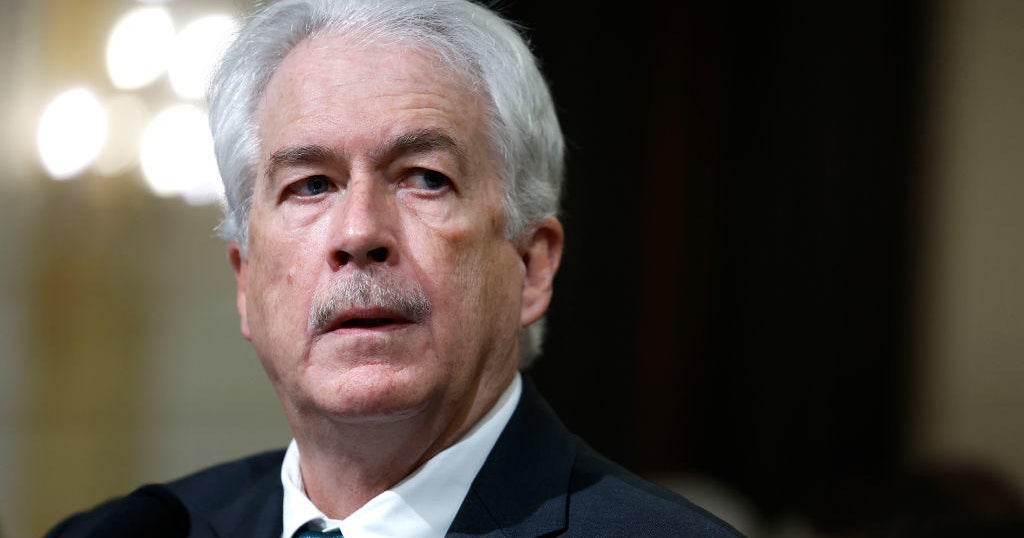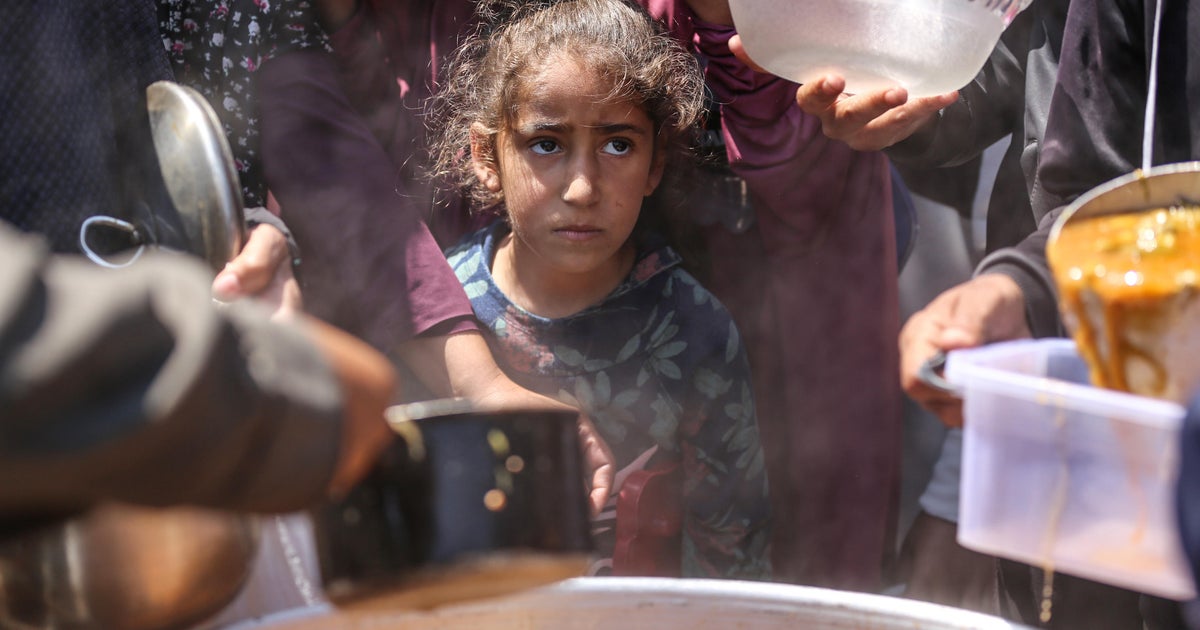Transcript: Ken Burns and Lynn Novick on "Face the Nation," Sept. 17, 2017
"Face the Nation" sat down on Sunday with filmmakers Ken Burns and Lynn Novick to discuss their new documentary series "The Vietnam War." The ten-part series tells the story of one of the most controversial wars in American history through interviews of nearly 80 witnesses from different aspects of the war, and it premieres Sunday night on PBS.
What follows is a transcript of the conversation, which aired Sept. 17, 2017, on "Face the Nation."
JOHN DICKERSON: Tonight, the ten-part documentary series, The Vietnam War, premiers on PBS. Joining us now, co-directors Ken Burns and Lynn Novick. Ken and Lynn, there's been a lot done on the Vietnam War. But what's so interesting about what you've done is tell the story of the North Vietnamese, as well. So I want to play a compelling clip of an American soldier and the North Vietnamese and then talk to you about it after we watch it. Take a look.
(FILM EXCERPT)
JOHN DICKERSON: There's so much going on in there, Ken. The interweaving of the North Vietnamese, was that always the plan?
KEN BURNS: Yes. And you know, I think that when Americans talk about the Vietnam War, which we do a lot, or also ignore it, we tend to talk only about ourselves. But if we really want to understand it, ask the fundamental or try to answer the fundamental question, "What happened?" You've got to triangulate.
You've got to know what's going on. And we have many battles in which you've got South Vietnamese soldiers and American advisors or, or, or--their counterparts and Vietcong or North Vietnamese. You have to get in there and understand what they're thinking. And the amazing thing in this film is just how similar our Marines and Army guys sound to the Vietcong and the NVA.
JOHN DICKERSON: Well, I want to, Lynn, ask you about that similarity. When you were doing the interviews was that what struck you when you were talking to both sides?
LYNN NOVICK: You know, yes. Sarah Botstein and I had the chance to go to Vietnam multiple times to do a lot of these interviews there with people who fought on the winning side. And we kept hearing the same echoes of things that American soldiers experienced.
And there was just a willingness, an openness to tell their story in a way that they never speak about it in Vietnam, which is the human story, what the war was really like. The war there is sort of this grand sort of victorious narrative without people in it.
And the people who survived want the next generation to know how terrible it was, how difficult it was. And they are very interested in communicating with each other and with Americans at this point. So we were the beneficiaries of that openness. It was incredible.
JOHN DICKERSON: Any questions from one side to the other through your work?
LYNN NOVICK: Yes. They were very interested to know, you know, what was it like for the Americans? Did they know where we were? We knew where they were. You know, sort of just what, what were the conditions that they fought in? There was a lot of back and forth. We would love to put them all in a room together. And we have in the film, as Ken was saying.
JOHN DICKERSON: All right, we're going to continue this conversation. But we need to take a quick break. So we'll take a break. And we'll be back in our second half hour with much more from Ken Burns and Lynn Novick. If your station does not continue immediately with Face the Nation, we will have the second part of our interview on our website, CBSNews.com, just as quickly as we can.
JOHN DICKERSON: Welcome back to Face the Nation. We continue our conversation with The Vietnam War filmmakers, Ken Burns and Lynn Novick. Ken, I want to pick up on what Lynn was saying about the two sides.
KEN BURNS: I think that reconciliation is possible within our two countries, where we're both divided, as well as between the two countries, where we seem to have, at least superficially, solved the distance between us. And we had a North Vietnamese soldier that we interviewed who had come, actually, to New Hampshire, where we were editing, and made some comments. We put them into the film.
And he had a chance recently, when Lynn took the film back to Vietnam, to look at it. And he said, "You know, when I was in the army, through the propaganda, I saw the demonstrations that were taking place against the war in the United States" as a sign of our weakness as a country and their superiority. Because they had a kind of monolithic sense of morale and purpose.
But he said, "I realize now that that was a sign of your strength," that he didn't have that luxury of being able to say, "You know what, I disagree," without ending up in a reeducation camp or worse. And I think, for us Americans who are still torn on the bias about Vietnam, to realize that, from the distance of our enemy, they can actually now appreciate all of the things that were going on with us might help us all heal.
JOHN DICKERSON: Right. Lynn, let me ask you about the American presidency and this war. You so beautifully chart the many presidents, of both parties, who were a part of this. What-- where-- what was the state of the American presidency through the Vietnam War?
LYNN NOVICK: We think that you can really see a sea change between when the war began-- or when America got involved in Vietnam, which is right after World War II, and that was the Truman administration, the Eisenhower administration, then through Johnson -- Kennedy, Johnson, and Nixon. That, you know, there was a sense that we believed in our leaders, that they were -- good people, that they knew what they were doing, that they were competent, that they would do what was in the best interest of the nation, that they would not lie to the people. They would tell the truth, you know, and that they would sort of carry on the nation's business in the best possible way.
And that just eroded and eroded and eroded. You had sort of a credibility gap, where the public began to doubt that they were getting the true story under Johnson. And it-- it sort of metastasized into terrible cynicism under Nixon that we cannot trust our presidents, that they don't tell us the truth, that they are not doing the right thing, and that, you know, just sort of a pox on both their houses.
And that's sort of where we are now. It's become sort of from naïve idealist sort of faith to skepticism to cynicism. And that's a disturbing thing. And you hear this in the audiotapes that we were able to include in the film where you hear our presidents speaking privately, especially Johnson and Nixon, about what they really think about the war, which is they have terrible doubts. They have no confidence. They want to get out. They don't see the point. And they go out on television the next day and say, "Everything's going great."
JOHN DICKERSON: Ken, this is -- it's about a decision that becomes, in a sense, irrevocable and has its own momentum.
KEN BURNS: It does.
JOHN DICKERSON: Give me your sense of that and also, as a filmmaker, how do you take those of us who weren't living in that moment back to it? Because now, Vietnam, it just -- it connotes failure for people. Like, how did they not know this was going to be a disaster? How do you convey that to people?
KEN BURNS: Well, well you know what? Good storytelling, someone once told me, is, "And then, and then, and then." And so you just start at the beginning. And you ask certain questions of the Truman administration. And they're making decisions based on domestic political considerations, which is a polite way, you know, of saying, "Will I get re-elected?" And Eisenhower and Kennedy and Johnson and Nixon.
What's interesting for, for us filmmakers, and maybe it's too much inside baseball, is that we're trying to sort of manage a combination of a bottom-up and a top-down way of communicating history, ordinary-- so-called ordinary folks at the granular level of combat, as you saw in that first clip.
But then also, we've got the president sort of supposedly top down, 30,000 feet, with our best
interests. And here, you're hearing, in the intimacy of the tapes, particularly the Johnson and Nixon tapes, the exact opposite not only of what they're saying, but it explodes this notion of the great man, and returns them to the same very human level as everyone else we're dealing with.
So you're perceiving this momentum that all of them know exactly that this is not going to work out, that as you know we have a strategy of not losing rather than winning or any articulation of particular goals that would represent winning. And then they're also saying one thing in public and another in private. But you can get at their--their humanity and their failures at the same time our ordinary witnesses are betraying the same sorts of complications. John Musgrave, you know, "I hated them, and I feared them at the same time."
JOHN DICKERSON: Lynn, what was it like to have the Vietnam War in your head for this length of time?
LYNN NOVICK: Well, I think it's true for Ken and me and our writer, Geoff Ward, our producer Sarah Botstein, we--none of us got a whole lot of sleep over the course of this. We sort of--it was a 24/7 obsession. And it was devastating. I mean it was devastating, and it was deeply inspiring.
It was devastating to think of the lives lost, American, 58,000 lives, Vietnamese, 3 million lives. 300,000 are still missing in Vietnam. So to try to absorb that the meaning of that was totally devastating. Every time we go to the wall, we cry. Every time we think about what happened in Vietnam, we cry.
And yet, we were also just deeply moved and sort of inspired by the courage of the people who shared their stories with us, you know, that they sort of summoned the inner resources to speak about things that were deeply troubling and to see them living and breathing and, you know, able to function and tell us what happened to them, people who lost a son, people who lost a friend, people who were wounded horribly. Just they survived. And here they are. And that's incredible.
JOHN DICKERSON: How did they do that? I mean, they're so calm in these descriptions.
KEN BURNS: What you want to do is try to go in and listen. I mean, too often now, in a kind of journalistic dynamic, you've got a set of questions. You're not--it isn't really listening. Because what we want to do is hear something in a tick of the voice or a twitch of a cheek and don't have just a couple of minutes.
We have, you know, an hour or two hours to sit with them and hear that that question number seven may, in fact, have a B, C, D, E, F, G thing. And suddenly, you're down a wormhole that we and, more importantly, they weren't completely sure they were going to go to.
And so there is nothing more satisfying, professionally, than to be witness to sort of express memory for the first time. And some of these people had stories, I won't say, "practiced," ever. It's impossible, in the Vietnam War, to have this practiced. But some of them, I think, surprised themselves by the way the moment, the memory overtook them.
And it's said that, you know, you fight wars twice, once on the battlefield and once in memory. And if you've got your camera there, and you're sensitive to it, you can sometimes see the conflict. And it's not always between armies. It's within a particular person. And that's-- that kind of growth and that kind of development is something you want to capture, too.
And so many of the 79 people you meet on camera in the film undergo profound psychological and emotional changes as a result of this war. And thankfully, gratefully, they were willing to share that transformation with us.
JOHN DICKERSON: Lynn, what surprised you the most in the process?
LYNN NOVICK: Well, I was devastated to find the sense that our leadership never really had confidence that the war could be won from the very beginning, and to think about all the lives lost and all the terrible suffering that people went through, both here and in Vietnam.
And I think I didn't expect that. I thought there would have been some moments along the way. And I think understanding how deeply complicated the war still is in Vietnam, you know, they won the Vietnamese government and the Vietnamese people that are on the winning side are now, to this day, reckoning with the losses they suffered and asking questions about what it means, some of the same questions we asked.
And that surprised us. We really didn't know that there would be this sense of, "Was it worth it? What price did we pay? Were our leaders doing the right thing?" The same questions we ask, they're asking in Vietnam. And that-- that was revelatory, for sure.
JOHN DICKERSON: All right. We're going to have to leave it there. Thank you both so very much. It's an amazing piece of work. And tonight, it will air on PBS at 8:00 p.m.eastern, The Vietnam War. And we'll be right back.



